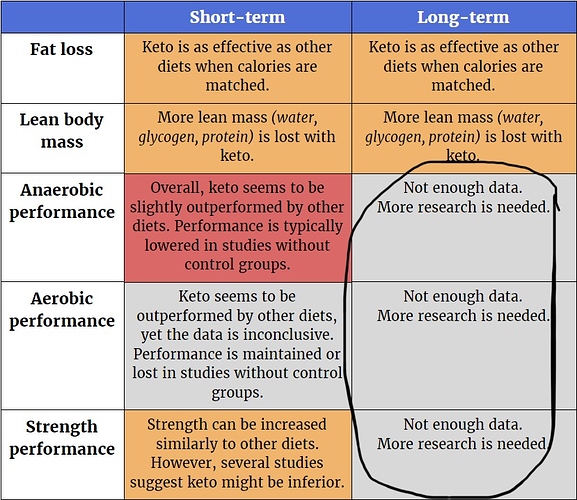I will maintain what would take 2 men to complete a highly complex physical task would only take 1 man; who would have more energy, strength, endurance, coordination, stamina and more speed (by 15 min); the longer they remain keto?
The problem is, no research[1] on enough actual 6 month or 27 week fat adapted peeps?
Colon/bowel cancer? High-Amylose Maize Resistant Starch (HAM-RS2); the missing carb of the salivary gland that feeds the gut microbiome, is the missing key to the puzzle; when looking at all the research on burning ketones/BHB for energy during physical exertion? HAM-RS2 is what early man once subsisted on in nature; it is part of our organic nature?
References:
[1] “… A caloric deficit typically causes us to lose weight, but if we eat sufficient amounts of protein and do strength training, we can retain or increase muscle mass . …” “…The body should then burn more body fat compared to a calorie restricted diet. As such, keto may have a metabolic advantage ” (Volek et al., 2004). …More
[2] Resistant Starch from High-Amylose Maize Increases Insulin Sensitivity in Overweight and Obese Men
[3] Zach Bitter Is the 100-mile American Record Holder. He Also Eats Almost No Carbs.
[4] World Record-Holder Reveals Key To Performance Success
[5] “…Four British rowers broke the Atlantic crossing record on a very low-carb, high-fat, moderate-protein regimen. 4 News: British rowers break Atlantic crossing record



